Life
Sign up for our newsletter
We summarize the week's scientific breakthroughs every Thursday.
-
 Animals
AnimalsGiant pandas may have only recently switched to eating mostly bamboo
Giant pandas may have switched to an exclusive bamboo diet some 5,000 years ago, not 2 million years ago as previously thought.
By Jeremy Rehm -
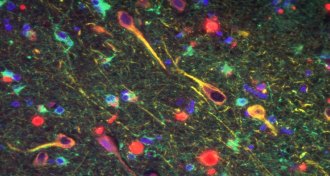 Neuroscience
NeuroscienceNo, we don’t know that gum disease causes Alzheimer’s
A recent study linked gum disease and Alzheimer’s disease, but the results are far from conclusive.
-
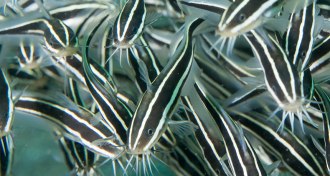 Animals
AnimalsScientists name 66 species as potential biodiversity threats to EU
North America’s fox squirrel, the venomous striped eel catfish and 64 other species are now considered invasive in the European Union.
-
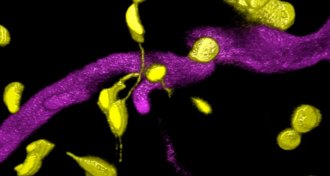 Plants
PlantsHow light-farming chloroplasts morph into defensive warriors
Researchers now know which protein triggers light-harvesting plant chloroplasts to turn into cell defenders when a pathogen attacks.
By Jeremy Rehm -
 Health & Medicine
Health & MedicineReaders have questions about Parkinson’s disease, moth wings and more
Readers had questions about Parkinson’s disease, the new definition of a kilogram’s mass, Saturn’s moon Dione and more.
-
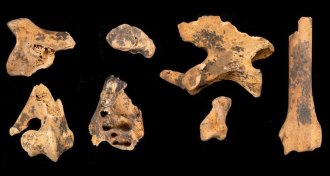 Anthropology
AnthropologyDogs may have helped ancient Middle Easterners hunt small game
Jordanian finds point to pooch-aided hunting of small prey around 11,500 years ago, offering new clues into dog domestication in the Middle East.
By Bruce Bower -
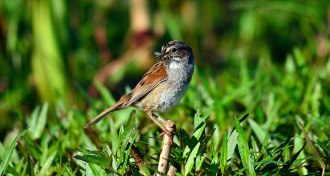 Animals
AnimalsMale birds’ sexy songs may not advertise their brains after all
A biologist backs off an idea he studied for years that the mastery of birdsong is a sign of bird smarts.
By Susan Milius -
 Neuroscience
NeuroscienceRocking puts adults to sleep faster and makes slumber deeper
People sleep better when their beds are gently rocked, a small study finds.
-
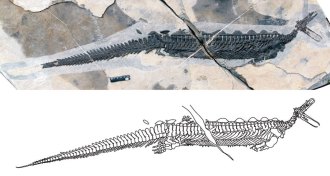 Paleontology
PaleontologyTiny eyes make a bizarre, ancient platypus-like reptile even weirder
An ancient oddball marine reptile had teeny-tiny eyes, suggesting it probably used senses other than sight to catch food.
-
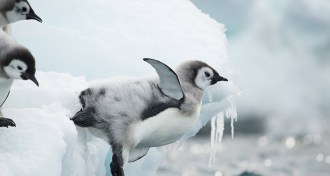 Animals
AnimalsYoung emperor penguins brave icy, winter waters in their first year
Young emperor penguins learn survival skills on their own, including how to navigate Antarctica’s icy winter ocean.
By Jeremy Rehm -
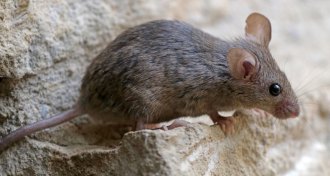 Genetics
GeneticsA CRISPR gene drive for mice is one step closer to reality
Researchers have made progress toward creating a gene drive for mice in the lab. Such genetic cut-and-paste machines have yet to be made for mammals.
-
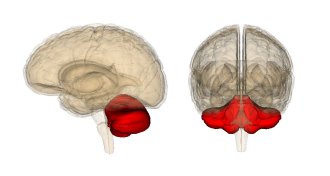 Neuroscience
NeuroscienceThe cerebellum may do a lot more than just coordinate movement
A study in mice finds that the cerebellum helps control social behavior, a result that has implications for autism and schizophrenia.